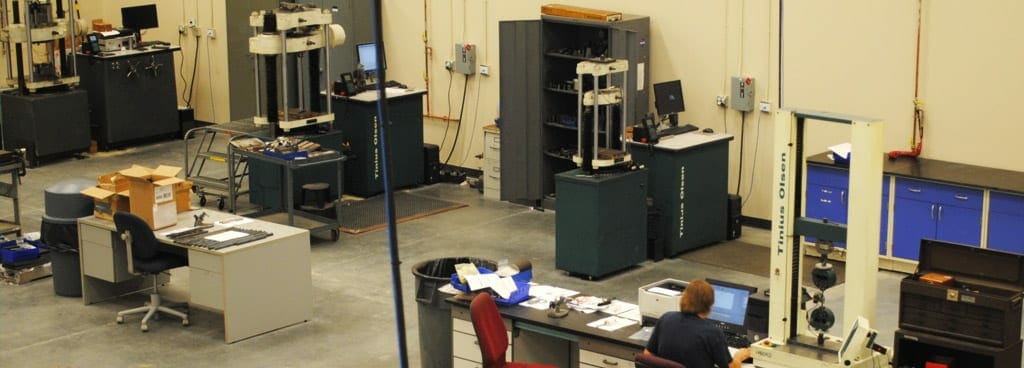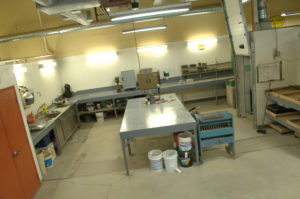Comprehensive Material Testing Lab: Your Partner for Precise Quality Control
Comprehensive Material Testing Lab: Your Partner for Precise Quality Control
Blog Article
Improvements in Product Screening for Improved Top Quality Guarantee
From non-destructive testing methods to automated systems, the area of product testing has seen amazing innovations. In this conversation, we will certainly check out some of the latest trends in product testing, consisting of the usage of sophisticated sensing unit technologies, the combination of data analytics, and the duty of synthetic knowledge. Let's dive right into the world of developments in product testing and discover exactly how these innovations are shaping the future of top quality guarantee.
Non-Destructive Examining Approaches
Non-Destructive Testing Approaches play a vital function in making certain the honesty and quality of products without compromising their structural stability. These methods are utilized in different markets, including building and construction, production, and aerospace, to spot and identify defects or anomalies in products or structures. By utilizing non-destructive testing engineers, specialists and techniques can review the residential properties, qualities, and efficiency of products without triggering any type of damages.
One commonly used non-destructive testing technique is ultrasonic screening (UT) UT entails using high-frequency acoustic waves to discover imperfections such as cracks, voids, and additions in materials. This method functions by transferring ultrasonic waves into the product and evaluating the reflected waves to identify the existence and place of any type of problems. UT is particularly reliable for checking welds, pipelines, and various other frameworks constructed from steel or composite materials.

Non-destructive screening approaches offer useful info about the top quality and dependability of materials, guaranteeing that they fulfill the called for requirements and specs. By applying these methods, industries can enhance their high quality assurance procedures, minimize the threat of failing or crashes, and ultimately deliver safer and extra trustworthy items to customers.

Automated Screening Systems
Automated testing systems have actually reinvented the field of product screening, supplying specific and efficient approaches for evaluating the top quality and stability of materials. These systems use innovative technologies and formulas to automate the testing process, minimizing human error and enhancing efficiency.
One key advantage of automated screening systems is their ability to execute tests at a much faster price than hand-operated screening approaches. With making use of robotics and advanced software program, these systems can carry out several examinations all at once, dramatically reducing the time required for testing large batches of products.
Additionally, automated screening systems use a higher level of precision and accuracy compared to manual screening. They can perform examinations with constant specifications, making sure that the results gotten are reproducible and reliable. By eliminating human subjectivity and irregularity, these systems offer a more objective evaluation of worldly quality.
Furthermore, these systems are equipped with advanced sensing units and detectors that can spot also the smallest issues or deviations in material buildings. This enables very early detection of possible concerns, permitting suppliers to take rehabilitative actions prior to the products are utilized in important applications.
In addition to their performance and accuracy, automated screening systems also enhance security in material testing. By decreasing human participation in potentially unsafe testing procedures, these systems lower the danger of mishaps and injuries, making sure a safer working environment.
Advanced Sensing Unit Technologies
With the assimilation of sophisticated sensor technologies, product screening systems have actually attained also greater levels of accuracy and effectiveness (material testing lab). Advanced sensor innovations play an essential role in boosting the high quality guarantee procedure by supplying precise and real-time information during product screening. These sensing units can discovering and gauging numerous physical residential properties such as temperature, stress, resonance, and stress, permitting for a comprehensive analysis of the material's habits under various conditions
One of the key innovations in sensor modern technologies is the development of wireless sensing units. These sensors remove the need for cumbersome circuitry and enable seamless data transfer, enhancing the total versatility and flexibility of the screening procedure. Furthermore, wireless sensing units can be quickly integrated right into existing material screening systems, making them an affordable solution for boosting and updating testing capacities.

Expert System in Material Screening
Expert system has actually changed the field of material screening, bringing unprecedented degrees of precision, effectiveness, and anticipating capabilities to the high quality guarantee procedure. With the ability to assess vast amounts of data and identify patterns that may go undetected by human drivers, AI formulas have greatly enhanced the integrity of material testing treatments.
One of the key benefits of using AI in material testing is its capacity to predict product actions under different conditions. By training AI models on historical information, scientists can establish predictive models that can approximate the efficiency of materials in real-world circumstances. This allows producers to maximize product option and layout, lowering the need for costly and lengthy experimental procedures.
In addition, AI can automate and simplify the product testing process, improving effectiveness and reducing human error (material testing lab). AI-powered systems can autonomously execute screening treatments, accumulate and evaluate information, and create comprehensive reports. This not only saves time however likewise makes sure reliable and regular results
Furthermore, AI can detect and assess worldly problems or anomalies with high precision. By contrasting examination results to predefined standards, AI formulas can rapidly recognize variances and sharp drivers to prospective issues. This early discovery of problems aids stop faulty products from going into the production procedure, eventually enhancing product quality and customer complete satisfaction.
Assimilation of Data Analytics
Information analytics plays a vital duty in the integration of material testing processes, allowing manufacturers to make and extract valuable insights educated decisions. By using sophisticated analytic techniques, producers can evaluate large volumes of data gathered during material testing to recognize patterns, trends, and anomalies that may impact the quality and efficiency of their products.
Integration of data analytics in product testing enables suppliers to keep track of and review various specifications and variables during the testing process. This includes aspects such as temperature, stress, stress, and various the original source other environmental problems that can impact the habits and features of materials. By analyzing this information, suppliers can gain a much deeper understanding of just how various variables affect the efficiency and connect of their products.
In addition, information analytics assists in determining possible issues or weak points in products, making it possible for suppliers to take proactive steps to resolve these concerns prior to they bring about product failures or safety and security threats. This aggressive strategy can substantially enhance the general quality control procedure and improve customer fulfillment.
In enhancement to identifying issues, information analytics can additionally enhance product screening treatments by recognizing areas of renovation and recommending adjustments in the testing protocols. By evaluating historical information, makers can identify patterns and patterns that can aid them enhance their screening procedures, decrease costs, and boost performance.
Final Thought
Non-destructive screening techniques, automated screening systems, advanced sensing unit technologies, and the combination of data analytics have all played a considerable duty in improving the accuracy and performance of product screening processes. Furthermore, the application of artificial intelligence in material testing has further contributed to the growth of even more specific and trustworthy screening techniques.
From non-destructive screening methods to automated systems, the area of product screening has actually seen remarkable advancements. Wireless sensing units can be conveniently his comment is here incorporated right into existing material screening systems, making them an economical remedy for updating and boosting testing capabilities.
Combination of data analytics in material screening allows manufacturers to keep track of and assess numerous criteria and variables throughout the screening process. Non-destructive screening approaches, automated testing systems, progressed sensor modern technologies, and the assimilation of information analytics have all played a substantial duty in improving the accuracy and performance of material testing procedures. Furthermore, the application of fabricated intelligence in product testing has actually better added to the advancement of even more exact and reliable testing methods.
Report this page